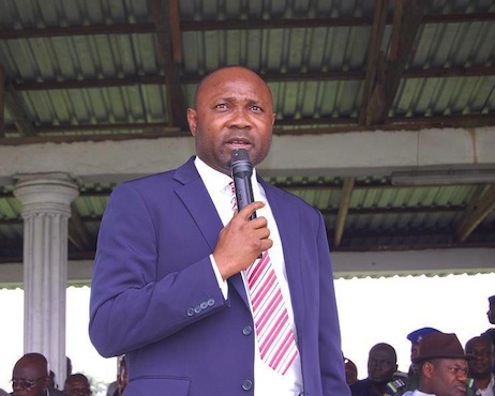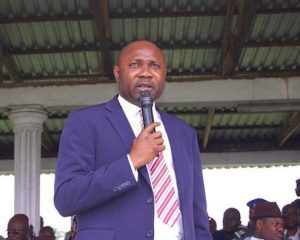Former Rivers State Commissioner for Agriculture, Emma Chinda
By Our Reporter
Former Commissioner for Agriculture, Emma Chinda, challenges Governor Nyesom Wike to account for loans taken by Rivers from CBN, other banks
A former Commissioner for Agriculture in Rivers, Emma Chinda, has challenged Governor Nyesom Wike to give an account of projects he executed from recent loans taken by the state from the Central Bank of Nigeria, CBN, and commercial banks.
PM News reports that Mr. Chinda said this while reacting to allegations by Wike that he embezzled N4 billion loan taken for development of agriculture in the state from CBN while he was a commissioner.
But Chinda said the N4 billion loan was used to finance projects like the Songhai Farm, the School to Land project, fish farms in Buguma and Andoni, Fadama 3 projects among others, which have been abandoned and left to waste by Wike’s administration.
In return, the former Commissioner asked Governor Wike to show Rivers people the N100billion water projects in the state funded by the CBN, while also advising the State Government to always give credit to the Federal Government for assisting the state through the apex bank.
Our Correspondent reports that on Wednesday, 2 February, Rivers State Executive Council gave approval for the State to access N15 billion (Fifteen billion Naira) facility from the Central Bank of Nigeria (CBN) Infrastructure Fund, in order to accelerate the completion of three critical projects.
According to the State government, the three major projects are the Oyigbo -Okoloma Road; Chokocho-Igbodo Road and construction of the 10th flyover by Governor Nyesom Ezenwo Wike’s administration at Rumuokwurushi-Elimgbu.
Briefing journalists at the Government House, Port Harcourt after the Executive Council meeting, the Commissioner for Finance, Isaac Kamalu said the State government felt that one way it could fast track the completion of these projects will be to access the CBN Infrastructure Fund, considering that the facility has a very low interest rate of 5 percent.
“Council in her deliberations at the Executive Council meeting today (Wednesday) approved that the Rivers State Government should access the Central Bank of Nigeria Infrastructure Support Facility to the tune of N15billion.
“This will be utilised as further support for the critical infrastructure that the State is embarking and presently prosecuting, which are the Chokocho-Igbodo Road in Etche Local Government; the Oyigbo-Okoloma Road in Oyigbo Local Government Area and the Rumuokwurushi -Elimgbu flyover.
“You will recall that prior to now, the Rivers State Government had accessed funds for these projects. However, these funds even if put together will not be able to accomplish these three critical projects mentioned. And so, government felt that one way it could fast track the completion of these projects will be to participate in this Central Bank Infrastructure Facility, considering that the facility has a very low interest rate of 5 percent, repayable within 20 years with three years moratorium.”
Kamalu expressed optimism that the N15 billion facility will be very good support to ensure that these projects are delivered on time and serve the interest of the State.
The Council also took the decision to recover dilapidated government quarters from civil servants and illegal occupants within Old and New Government Residential Area (GRA), Port Harcourt and reallocate them to competent private individuals.
The Commissioner for Information and Communications, Paulinus Nsirim, explained that the Council took the decision because some of these properties were fraudulently acquired by retired civil servants through dubious processes of allocation and sale.
According to him, some of the government properties also fell into utter deterioration due to the abject neglect and lack of maintenance by the occupants.
“This has therefore necessitated the recovery of these properties as part of government’s urban renewal programme, with the civil servant – occupants being reallocated to alternative private properties through financial support provided by the State government


